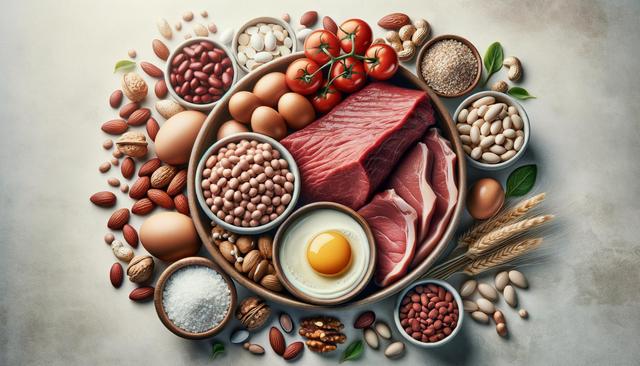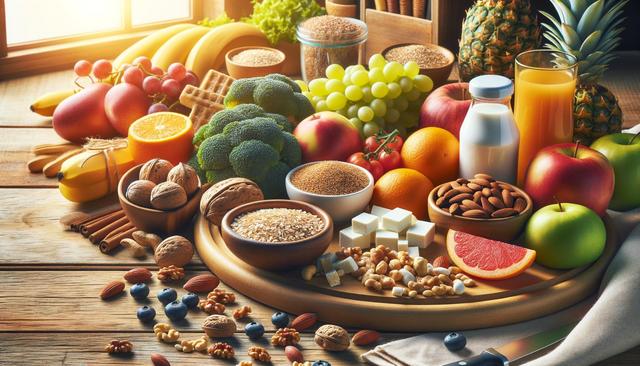Understanding the Role of Protein in Body Composition
Protein plays a critical role in shaping body composition, regardless of whether your goal is to lose fat or gain muscle. It helps repair tissues, build lean mass, and maintain satiety, which is especially beneficial for those aiming to reduce body fat. For weight gain, protein supports muscle development when paired with strength training and an overall calorie surplus. The key is not just the amount of protein, but also the sources and timing of consumption. Incorporating protein strategically into meals and snacks can help regulate appetite and boost metabolism, or, conversely, add the necessary nutrients to build size and strength.
For individuals pursuing weight loss, protein can help reduce hunger and prevent muscle loss during a calorie deficit. For those aiming to gain weight, particularly lean mass, protein encourages muscle growth and recovery. Understanding your body’s needs and activity level is essential in determining how much protein to consume daily.
Top High-Protein Foods for Weight Loss
When focusing on weight loss, choosing lean, nutrient-dense protein sources can help manage calories while still providing satiating meals. These foods are typically low in fat and calories but rich in essential amino acids. Here are some high-protein options that align well with weight loss strategies:
- Eggs – versatile and packed with nutrients
- Chicken breast – low in fat and high in protein
- Greek yogurt – also contains probiotics for gut health
- Lentils and legumes – offer fiber and plant-based protein
- Cottage cheese – low-calorie and satisfying
Including these proteins in your meals can help keep you full longer and reduce the urge to snack on high-calorie, low-nutrient foods. Combining them with vegetables, whole grains, and healthy fats creates a well-rounded, weight-conscious meal plan.
High-Protein Foods for Healthy Weight Gain
For those looking to gain weight, particularly muscle mass, higher-calorie protein sources are often more suitable. These foods should be nutrient-rich and support the increased energy demands of strength training or active lifestyles. Here are some excellent options:
- Salmon and other fatty fish – rich in protein and omega-3 fats
- Whole eggs – nutrient-dense with both protein and healthy fats
- Beef and lamb – provide iron and high-quality protein
- Nut butters – calorie-dense and contain plant-based protein
- Quinoa – a complete plant protein with carbs for energy
Incorporating these into frequent meals and snacks can help add muscle-supporting calories while maintaining balanced nutrition. Pairing protein with complex carbohydrates and healthy fats can further enhance growth and recovery.
Balancing Protein Intake with Other Nutrients
Regardless of your goal, protein should not be consumed in isolation. A balanced diet includes carbohydrates for energy and fats for hormone health and nutrient absorption. For weight loss, combining protein with fiber-rich vegetables and whole grains can increase meal satisfaction without excessive calories. For weight gain, combining protein with calorie-dense foods like avocados, nuts, and oils can boost intake without overwhelming volume.
Some tips for maintaining balance include:
- Plan meals that include all macronutrients
- Use snacks to fill protein gaps
- Stay hydrated, especially if increasing protein intake
- Monitor energy levels and adjust portions as needed
Tracking your food intake can help ensure you’re getting the right mix of nutrients to support your specific goals, and help you make informed choices as your needs change over time.
How to Adjust Protein Intake Based on Goals
The amount of protein needed varies from person to person. For weight loss, recommendations often range from 1.2 to 1.6 grams of protein per kilogram of body weight per day. For those aiming to gain muscle mass, intake may rise to 1.6 to 2.2 grams per kilogram. It’s important to individualize these figures based on factors such as age, activity level, and overall health.
Here are a few strategies to adjust your intake:
- Increase portion sizes of protein at main meals
- Use protein-rich snacks like boiled eggs, nuts, or yogurt
- Incorporate protein supplements if whole foods fall short
- Distribute protein evenly throughout the day to maximize absorption
Consulting a nutrition professional can help tailor your intake to your needs, particularly if you have specific fitness or health goals. Making gradual changes and monitoring progress can also ensure that your dietary adjustments are effective and sustainable.
Conclusion: Choosing the Right Protein for Your Journey
Whether you’re aiming to lose weight or gain muscle, protein is a cornerstone of effective nutrition. The type and amount of protein you include should reflect your individual goals, preferences, and lifestyle. By selecting high-quality sources and integrating them into a balanced eating plan, you can support your body’s needs and move closer to your desired outcomes. Remember, consistency and balance are key—your protein strategy should fit naturally into your overall diet and be adaptable as your goals evolve.


